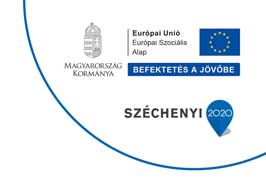Dear Visitor,
the companies of our Group, with around 9 thousand employees, supply orders from customers and meet market demand at 122 manufacturing sites across Hungary. About 83% of our employees are workers with reduced work capacity, which entails increased precision in their work, focused attention and in some cases increased tolerance of monotony. For us, there is no such thing as ‘compromise’ when it comes to meeting delivery deadlines or accuracy!
We are also supplying partners of a variety of domestic and international brands in multiple fields of manufacturing, assembly and packaging. Through our manufacturing capacities and nationwide coverage, there are no impossible challenges for us in light industrial activities requiring considerable technical/professional expertise or simpler but more labour-intensive capacities.
Our customers take their fair share of social responsibility regarding people with disabilities; and at the same time, they are supplied with products and services with which they will be fully satisfied.
In addition to our core operations, our Group operates extensive social responsibility programmes aimed, on the one hand, at helping our employees, and, on the other hand, at representing the cause of disabled people, raising awareness in society concerning workers with reduced work capacity.
Just give us a chance to prove that even workers with reduced work capacity can carry out at least as valuable work as anybody else.
Our values
The new management of FŐKEFE Közhasznú Nonprofit Kft. (FŐKEFE Non-Profit, Public Benefit Purpose Ltd.) wishes to operate the organisation on the basis of shared values and corporate goals enabling sustainable and economical operations. We are committed to operating the Company with the aim of employing workers with reduced work capacity, by creating its material and personal requisites.
Our organisational values are based on the following 6 basic values:
Our key milestones
The employment of people with disabilities is not a new idea in Hungary; as early as in 1826 a programme was launched in Pest with the aim of “providing help and ease for all unfortunate sons of our country for all times to come”. The institutions concerned took care of the blind, while later on, they provided them with education and vocational training. Similar efforts were made to help the deaf and hard of hearing. In the 1940s, tailors, seamstresses, producers of leather goods, carpet makers and other artisans were still working independently.
1949.
Vakokat Foglalkoztató Állami Vállalat, its legal predecessor, was a state-owned company employing only visually impaired people. Initially with a workforce of 70, the company produced brushes, brooms, and hand-woven fabric.
1950.
After the establishment of Councils, the company continued operating from 1 October under the name of Fővárosi Kefe- és Seprűipari Vállalat, with a few hundred employees.
1958.
The plant building in the Zugló district of Budapest, in Laky Adolf street, was constructed and has been functioning since as a manufacturing and administrative centre.
1979.
By that time, the company had a nearly 600-strong workforce. The textile business line had grown substantially. In the late Kádár era, the company was supervised by the Industry Department of the Budapest Metropolitan Council.
1990.
The collapse of Hungary’s eastern markets in the wake of the political transition, taking the Hungarian textile industry into its downfall, too. That business division was, however, replaced by the manufacture of fine mechanical and telecommunications products in various cooperation arrangements. A number of companies in western countries recognised in the 1990s that it was worth ordering manual labour intensive products from us.
1992.
The Company was taken over by the State Property Agency (today Hungarian National Asset Management Inc.)..
1994.
Transformation into a limited liability company (Kft.)
2006.
Transformation into a public benefit corporation (Kht.)
2007.
The rehabilitation employer sister company in Szombathely, called Savaria Nett-Pack, as well as Rehabit Kft. merged into the Company during the year to save jobs. This added new strategic divisions (e.g. the manufacture of office paper products and boxes, assembly of lamps) to FŐKEFE.
2008.
FŐKEFE is turned into a Kft. again, but this time as a non-profit company.
2013.
A TÁMOP (Social Renewal Operational Programme) project entitled Rehabilitation-Value-Change was launched, and as a result the Company provided some 1700 of its employees with training in a variety of fields to improve their chances in the labour market.
2016.
Integrated management with ERFO and KÉZMŰ.
2020.
Setting up a new regional production structure, group-level optimisation, creation of an integrated corporate governance system.







